 April 24, 2015: The original Apple Watch launch means consumers, who endured a seven-month wait after the device’s unveiling at a keynote the previous September, can finally strap an Apple wearable onto their wrists.
April 24, 2015: The original Apple Watch launch means consumers, who endured a seven-month wait after the device’s unveiling at a keynote the previous September, can finally strap an Apple wearable onto their wrists.
Apple CEO Tim Cook describes the smartwatch as the “next chapter in Apple history.” Behind the scenes, however, the first Apple Watch launch is a moment long in the making.
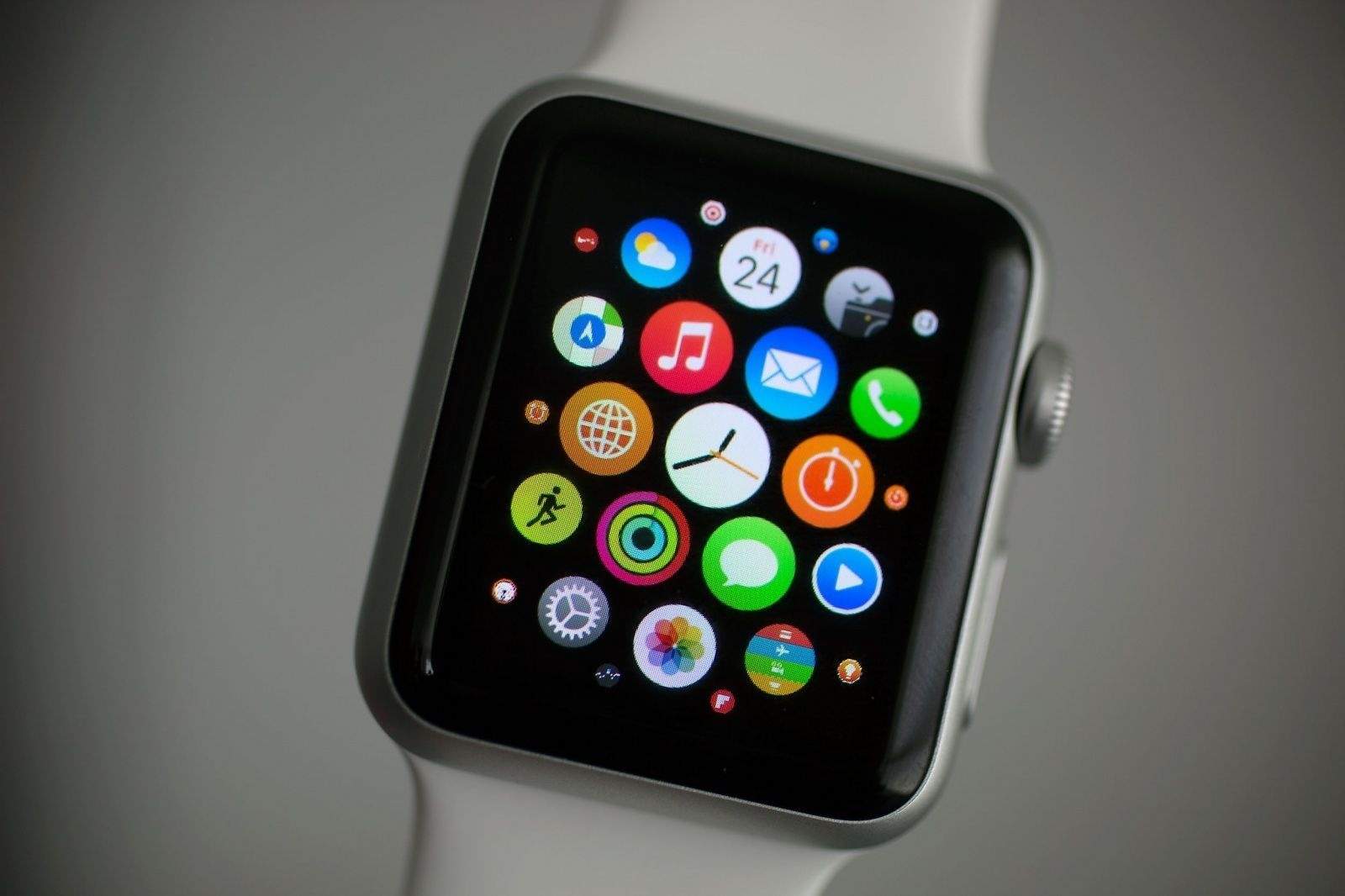

 April 22, 2013: The world gets its first Apple car. Well, kind of. In reality, the iBeetle is a collaboration with German automaker Volkswagen that offers a car “stylistically linked” to Apple.
April 22, 2013: The world gets its first Apple car. Well, kind of. In reality, the iBeetle is a collaboration with German automaker Volkswagen that offers a car “stylistically linked” to Apple.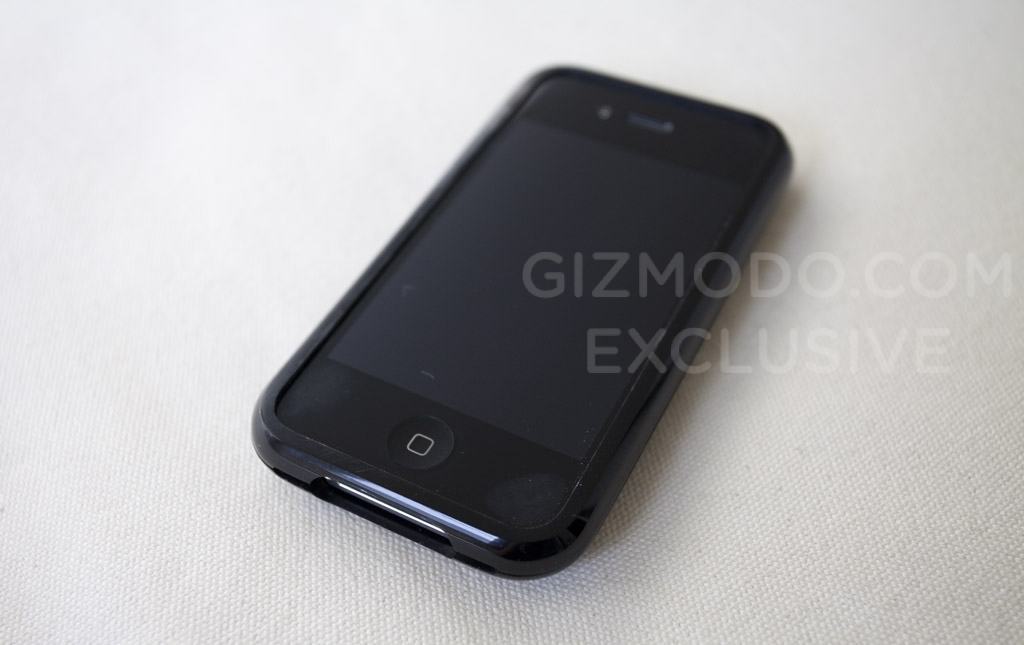
 April 20, 2010: A day after the most high-profile iPhone leak in history, tech news site Gizmodo dissects a prototype iPhone 4, then publishes the teardown — showing the world exactly what’s inside the soon-to-be-released device.
April 20, 2010: A day after the most high-profile iPhone leak in history, tech news site Gizmodo dissects a prototype iPhone 4, then publishes the teardown — showing the world exactly what’s inside the soon-to-be-released device.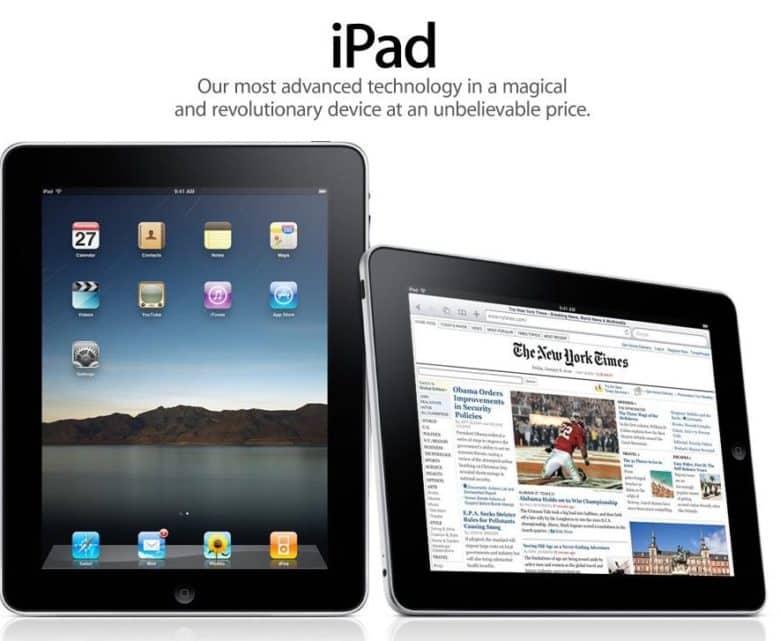
 March 31, 2010: The world gets its first sense of how Apple’s tablet measures up, as the first iPad reviews hit the internet.
March 31, 2010: The world gets its first sense of how Apple’s tablet measures up, as the first iPad reviews hit the internet.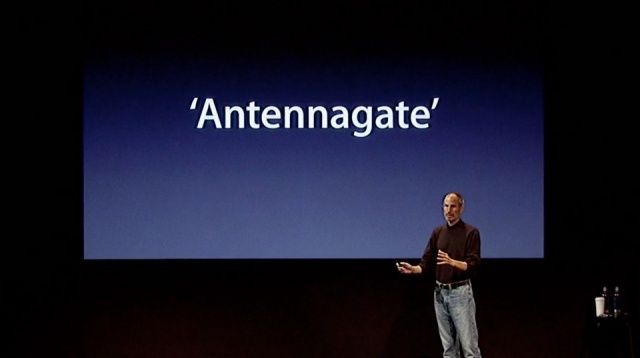
 March 29, 2012: Apple settles its “Antennagate” controversy by giving affected iPhone 4 owners the chance to claim a whopping $15 payout. The settlement covers customers who experienced problems with the phone dropping calls due to its cutting-edge design, but were unable to return their handsets (or didn’t want a free bumper from Apple to mitigate against the problem).
March 29, 2012: Apple settles its “Antennagate” controversy by giving affected iPhone 4 owners the chance to claim a whopping $15 payout. The settlement covers customers who experienced problems with the phone dropping calls due to its cutting-edge design, but were unable to return their handsets (or didn’t want a free bumper from Apple to mitigate against the problem).
 March 26, 2010: Apple pays up to settle a trademark dispute with Japanese multinational Fujitsu over the name “iPad” in the United States.
March 26, 2010: Apple pays up to settle a trademark dispute with Japanese multinational Fujitsu over the name “iPad” in the United States.
 March 16, 2012: Apple introduces the third-generation iPad, its first tablet to come with a Retina display. Marketed as simply “the new iPad,” it’s widely known as the “iPad 3.”
March 16, 2012: Apple introduces the third-generation iPad, its first tablet to come with a Retina display. Marketed as simply “the new iPad,” it’s widely known as the “iPad 3.”
 March 12, 2010: Apple passes Walmart and investment firm Berkshire Hathaway in value to take third place in market capitalization among publicly listed U.S. companies. The Apple market cap soars past $200 billion, fueled by
March 12, 2010: Apple passes Walmart and investment firm Berkshire Hathaway in value to take third place in market capitalization among publicly listed U.S. companies. The Apple market cap soars past $200 billion, fueled by 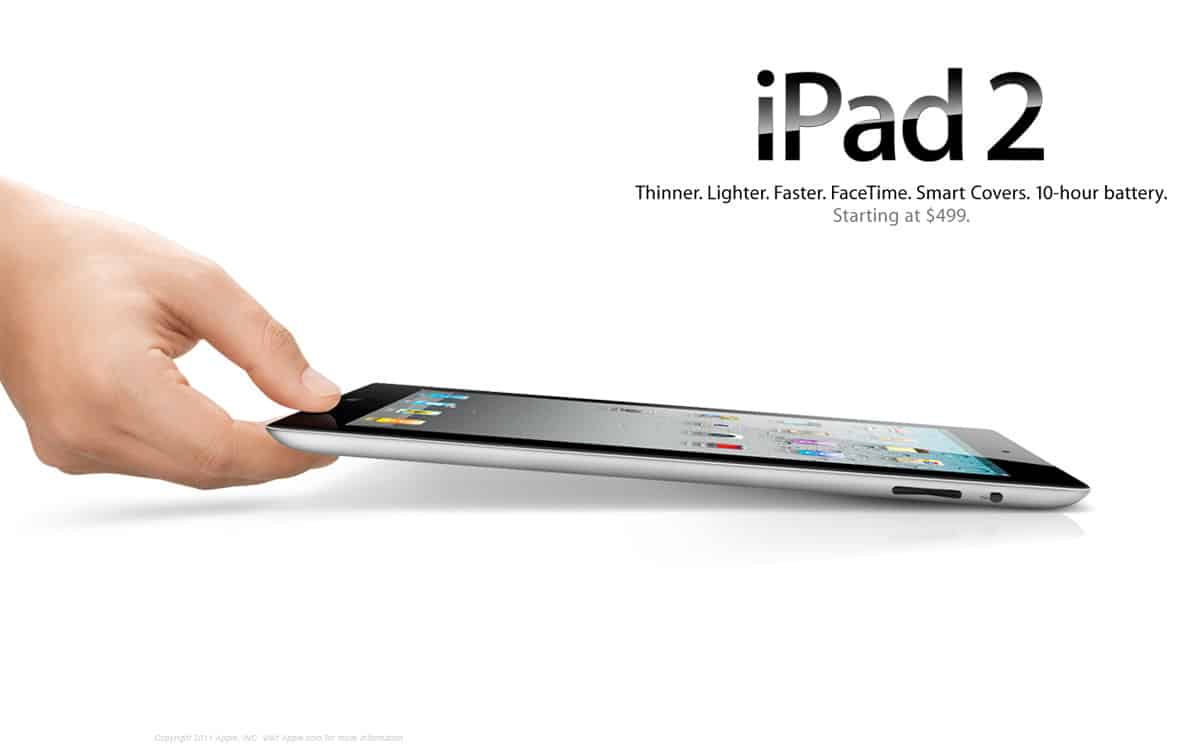
 March 11, 2011: How do you follow up your biggest product debut ever? That’s the question Apple needs to answer as it releases the iPad 2.
March 11, 2011: How do you follow up your biggest product debut ever? That’s the question Apple needs to answer as it releases the iPad 2.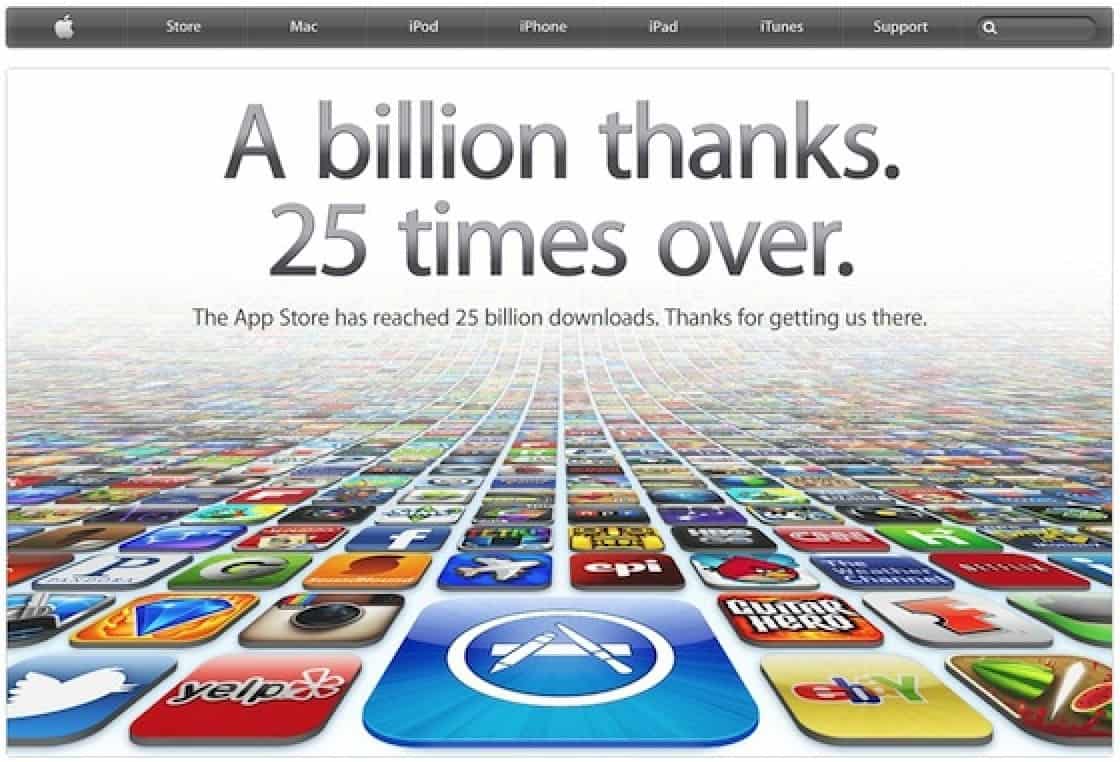
 March 5, 2012: Apple reaches a staggering milestone, with 25 billion apps downloaded from the iOS App Store. The company celebrates with a giveaway titled the “25 Billion App Countdown.”
March 5, 2012: Apple reaches a staggering milestone, with 25 billion apps downloaded from the iOS App Store. The company celebrates with a giveaway titled the “25 Billion App Countdown.”
 March 4, 2014: Peter Oppenheimer, the Apple chief financial officer who presided over a decade of skyrocketing growth, steps down from the company.
March 4, 2014: Peter Oppenheimer, the Apple chief financial officer who presided over a decade of skyrocketing growth, steps down from the company.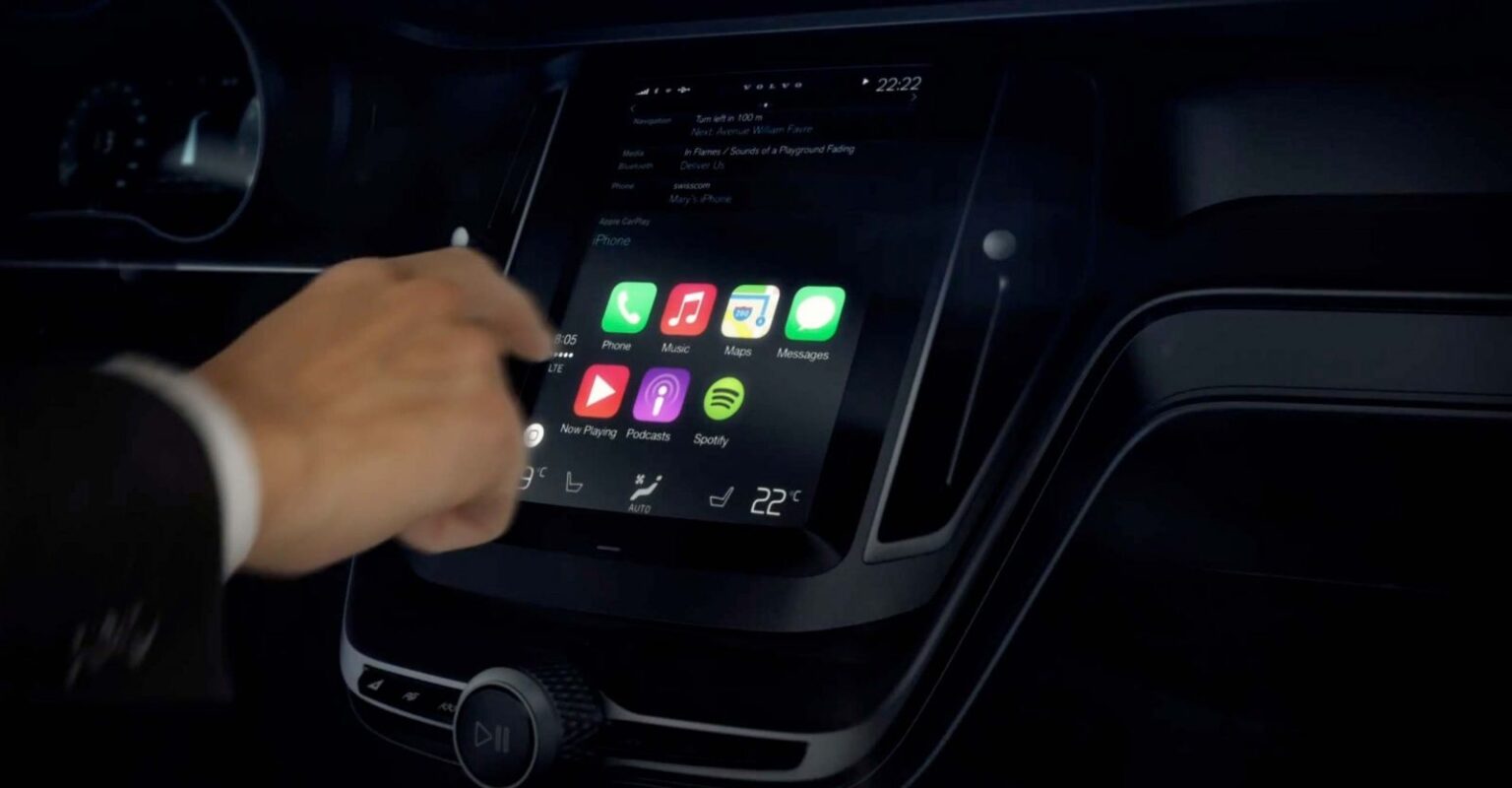
 March 3, 2014: With the CarPlay launch, Apple introduces iOS functionality for iPhone users behind the wheel via the car’s in-dash screen.
March 3, 2014: With the CarPlay launch, Apple introduces iOS functionality for iPhone users behind the wheel via the car’s in-dash screen.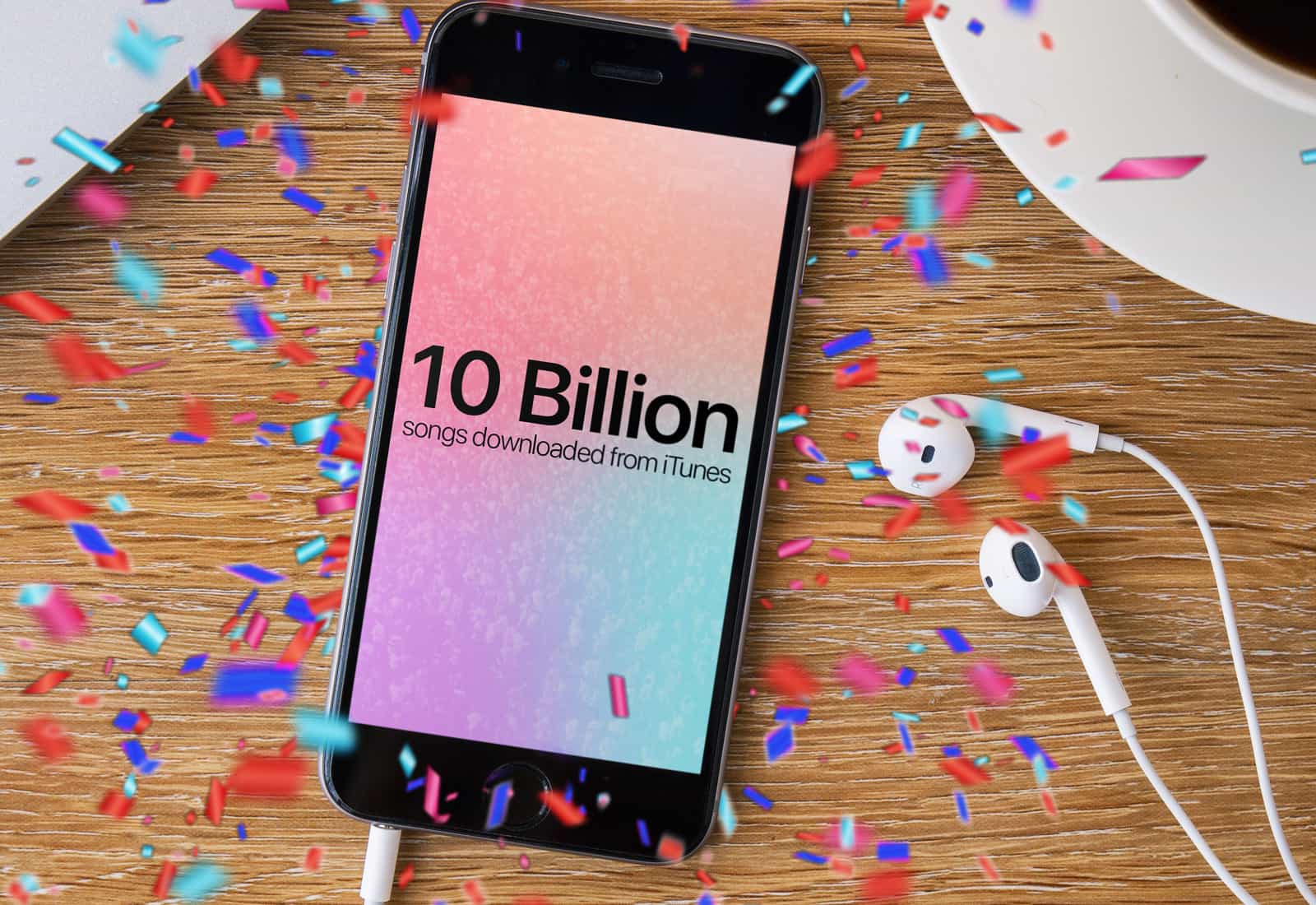
 February 23, 2010: The iTunes Store officially passes the 10 billion music downloads mark, reaching a major milestone. The 10 billionth purchase? “Guess Things Happen That Way” by Johnny Cash.
February 23, 2010: The iTunes Store officially passes the 10 billion music downloads mark, reaching a major milestone. The 10 billionth purchase? “Guess Things Happen That Way” by Johnny Cash.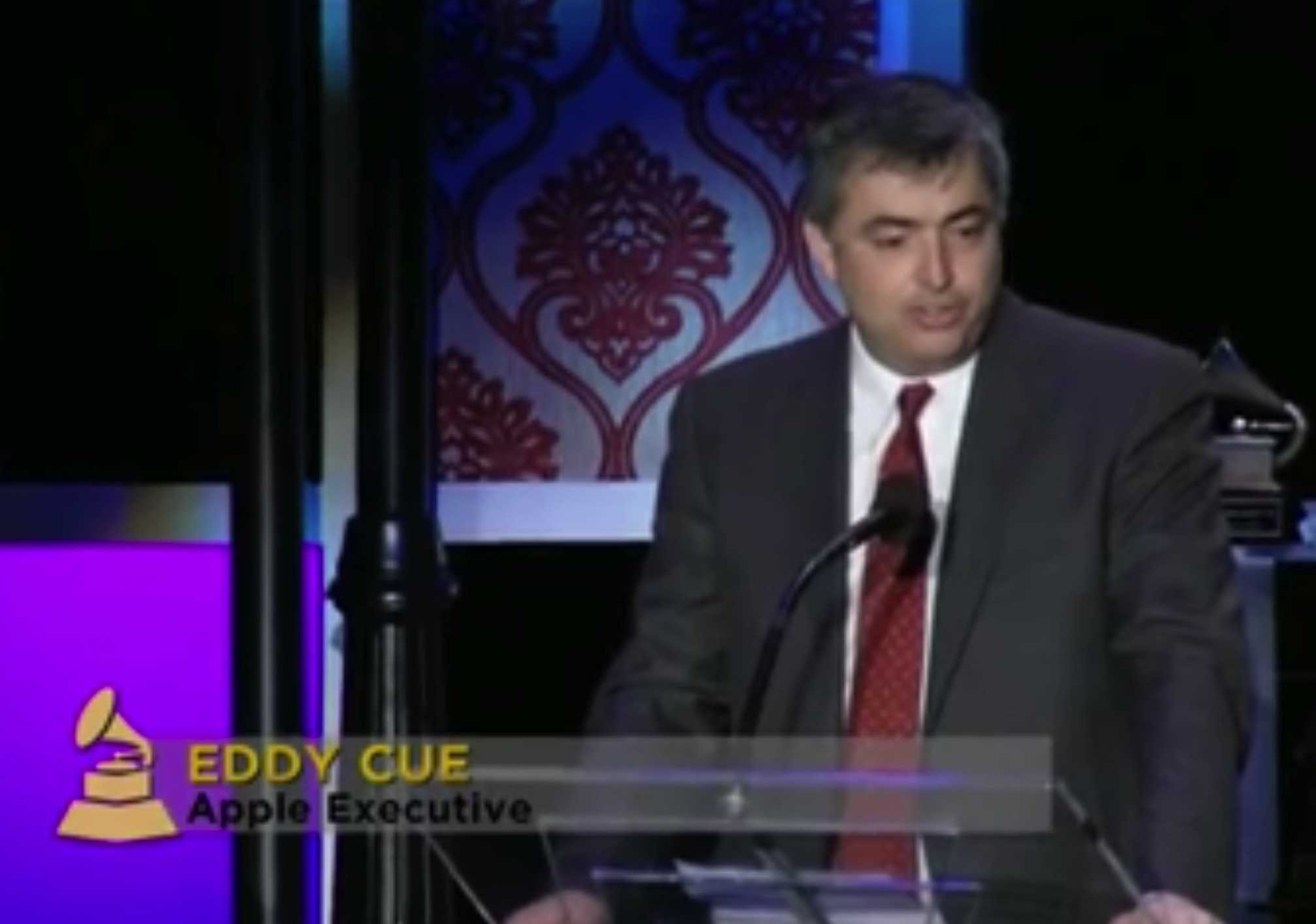
 February 12, 2012: Months after his untimely death, Apple co-founder Steve Jobs is honored with a Special Merit Grammy Award in recognition of his contributions to the field of music with the iPod and iTunes Music Store.
February 12, 2012: Months after his untimely death, Apple co-founder Steve Jobs is honored with a Special Merit Grammy Award in recognition of his contributions to the field of music with the iPod and iTunes Music Store.
 February 11, 2010: With iPad excitement reaching a fever pitch, Steve Jobs’
February 11, 2010: With iPad excitement reaching a fever pitch, Steve Jobs’ 
 February 8, 2010: Steve Jobs reportedly flips out over a tweet sent from an iPad by an editor at The Wall Street Journal.
February 8, 2010: Steve Jobs reportedly flips out over a tweet sent from an iPad by an editor at The Wall Street Journal.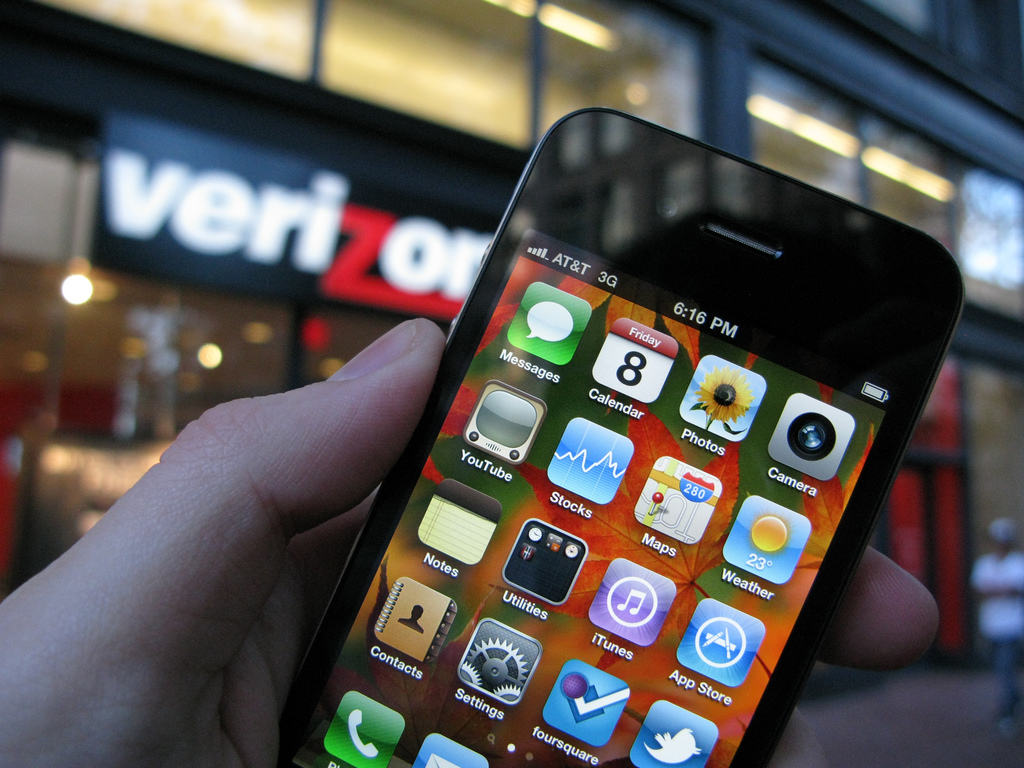
 February 3, 2011: The iPhone finally arrives on Verizon Wireless, the United States’ largest carrier, ending nearly four years of exclusivity with AT&T.
February 3, 2011: The iPhone finally arrives on Verizon Wireless, the United States’ largest carrier, ending nearly four years of exclusivity with AT&T.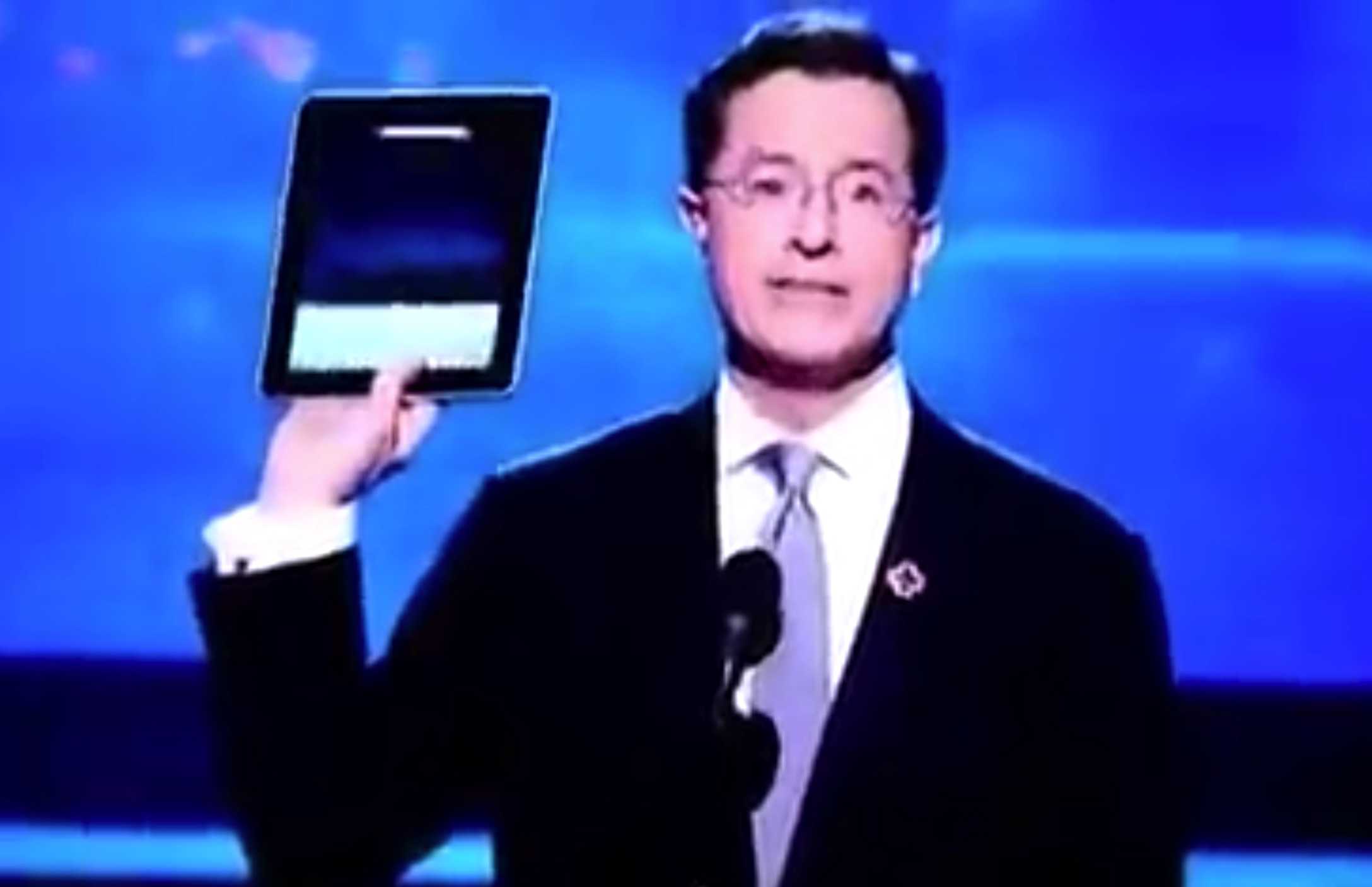
 February 1, 2010: The tech-loving world goes into meltdown at the sight of comedian Stephen Colbert using a prerelease iPad to read nominations during the Grammy Awards show.
February 1, 2010: The tech-loving world goes into meltdown at the sight of comedian Stephen Colbert using a prerelease iPad to read nominations during the Grammy Awards show.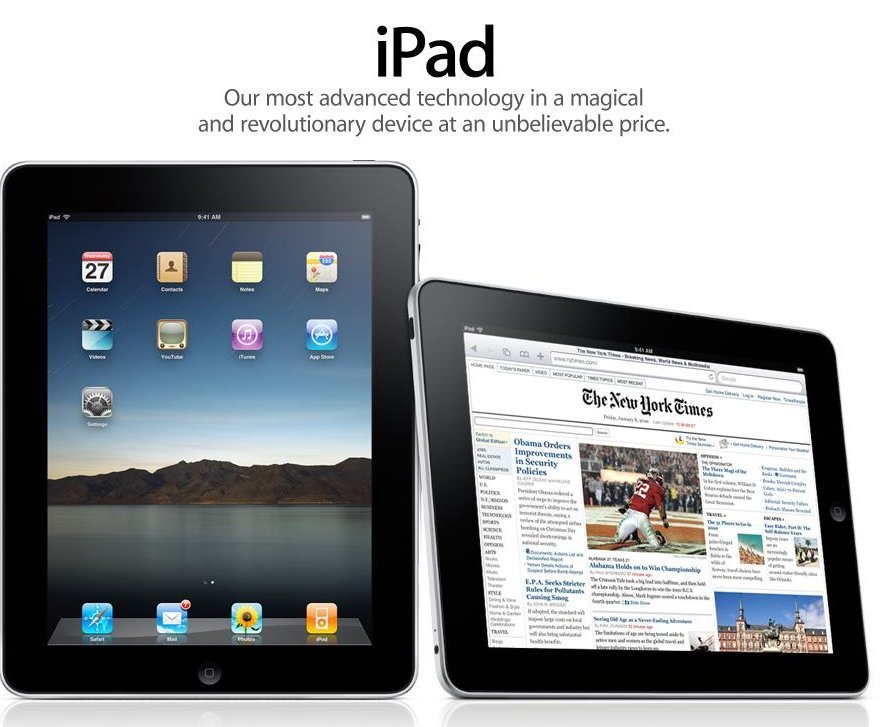
 January 27, 2010: After months of rumors and speculation, Steve Jobs publicly shows off the iPad for the first time.
January 27, 2010: After months of rumors and speculation, Steve Jobs publicly shows off the iPad for the first time.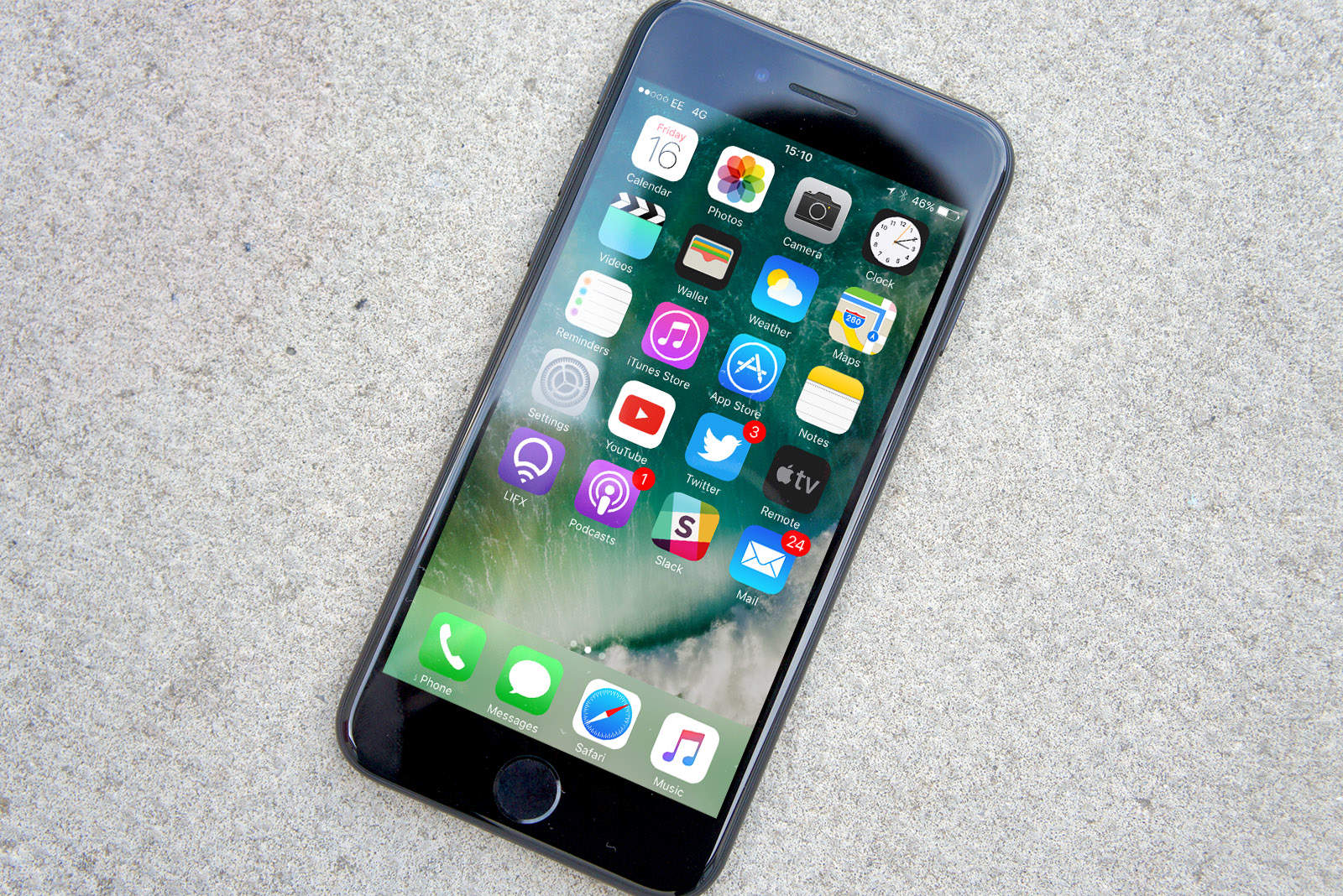
 January 26, 2016: After nine years of spectacular growth, iPhone sales flatline for the first time.
January 26, 2016: After nine years of spectacular growth, iPhone sales flatline for the first time.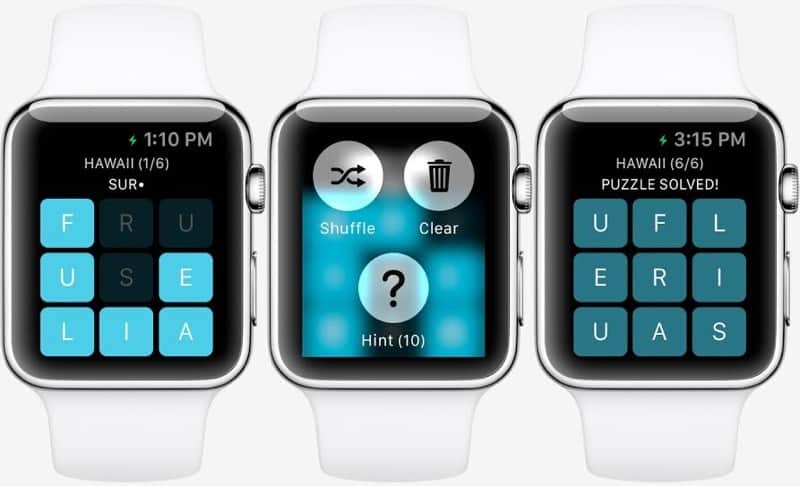
 January 21, 2015: Months before the first Apple Watch goes on sale, users get a glimpse at what playing games might look like on the smartwatch.
January 21, 2015: Months before the first Apple Watch goes on sale, users get a glimpse at what playing games might look like on the smartwatch.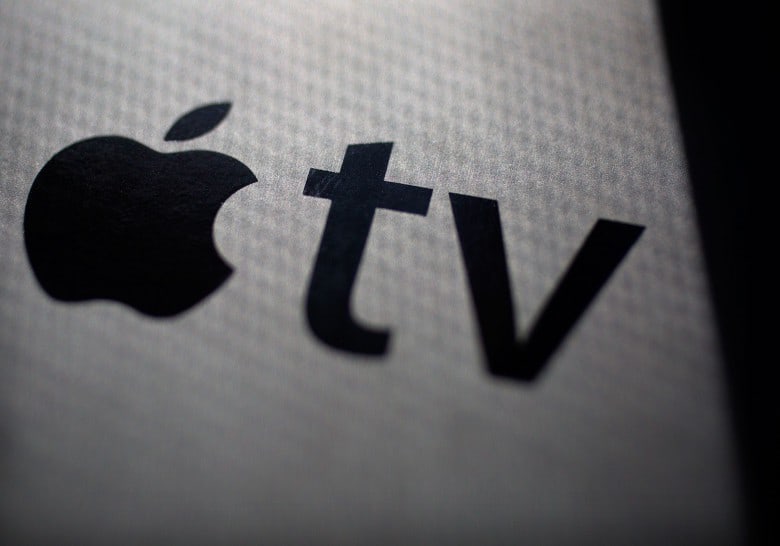
 December 27, 2010: Almost four months after the second-gen Apple TV’s debut, Cupertino says it has sold 1 million of the streaming video devices.
December 27, 2010: Almost four months after the second-gen Apple TV’s debut, Cupertino says it has sold 1 million of the streaming video devices.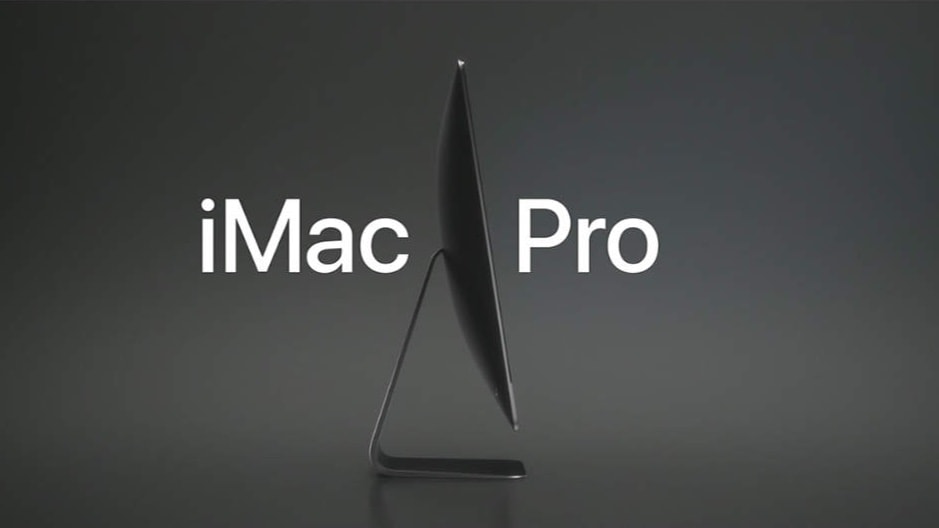
 December 14, 2017: The much-anticipated iMac Pro finally reaches customers many months after it was announced. With a built-in 27-inch, 5K display and an Intel Xeon processor, the high-end desktop combines the features of an iMac and a Mac Pro.
December 14, 2017: The much-anticipated iMac Pro finally reaches customers many months after it was announced. With a built-in 27-inch, 5K display and an Intel Xeon processor, the high-end desktop combines the features of an iMac and a Mac Pro.
 December 11, 2013: A Chinese labor rights group calls on Apple to investigate the deaths of several workers at a Shanghai factory run by iPhone manufacturer Pegatron.
December 11, 2013: A Chinese labor rights group calls on Apple to investigate the deaths of several workers at a Shanghai factory run by iPhone manufacturer Pegatron.
 December 9, 2011: Apple opens a store in New York’s fabled Grand Central Terminal, the company’s fifth Manhattan retail outlet.
December 9, 2011: Apple opens a store in New York’s fabled Grand Central Terminal, the company’s fifth Manhattan retail outlet.